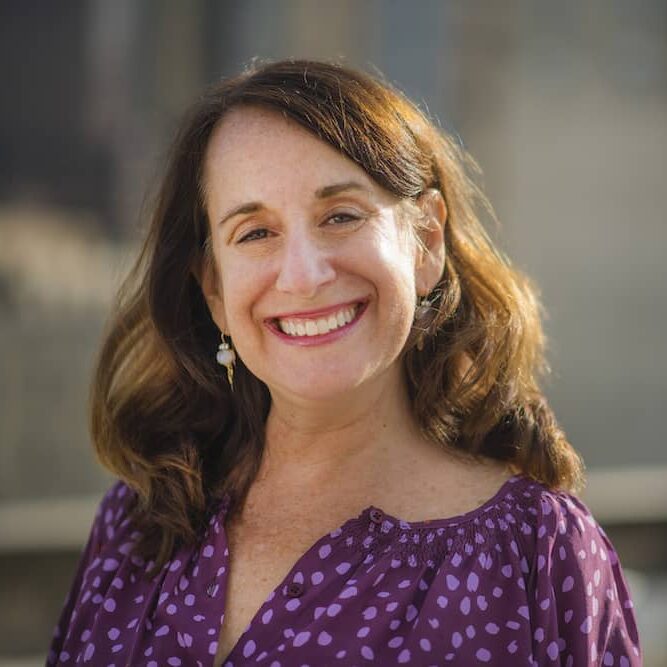
Dr. Patricia Westmoreland washes her hands 20 to 30 times each day she does rounds at the Medical Center of Aurora. That, she says, “doesn’t count sanitizing them who-knows-how-many times more” as an extra step to protect her patients. Nor does it count scrubbing herself down in a hot shower when she goes home, before hugging her kids.
“In prior years, I would have considered the rituals I now do phobic or obsessive. I would have said that’s crazy,” the psychiatrist says. “But now we’re living in this constant anxiety and hyper-vigilance where everything you do is dictated by fear of getting or spreading an illness you can’t see.
“So who knows, really, what’s crazy anymore?”
Westmoreland mainly treats patients in the Medical Center’s 20-bed women’s unit. Some here were hospitalized after months of putting in 70 hours a week schooling their children, caring for parents and grandparents, and grocery shopping, cooking and cleaning in addition to their regular, paid jobs. Some lost those jobs, and, with them, their homes and even custody of their kids. Some had been drinking or otherwise self-medicating more than usual, or fighting with their partners, who beat them up. Some have recovered from COVID, but not from complications such as PTSD or delirium related to it. Some are grieving loved ones who didn’t recover. Some are new moms, terrified of the world into which they have brought babies. Some have been cutting themselves, gesturing or attempting suicide, or in other ways giving up.
“I cannot tell you how many admissions I’ve had that, if I had to put a stamp on them, would say ‘Due to COVID. Due to COVID. Due to COVID,’” she says.
“It’s come to feel like quicksand out there. There’s more than your average amount of suffering going around. You see the pain, the loss, the incredible loss in the community that you can’t remedy with medication. You can’t bring back somebody’s hope when they’ve lost everything.”
If you’re struggling, help is available on Colorado’s crisis hotline. Call 1-844-493-TALK(8255)
Westmoreland studied medicine in her native South Africa, works as the residency training director for Health One’s psychiatry program and has served as president of the Colorado Psychiatric Society. Yet, nothing in 20 years of practice prepared her for trying to treat patients through face shields and N95 masks. Those barriers, she says, can make people feel more isolated in their illnesses – especially those with psychoses who are apt to misinterpret facial cues. Masks also make it hard for her to read patients. She can see their eyes, but not always what the rest of their faces are saying. A downcast mouth, a wry smile, or a tense jaw line can be key for a psychiatrist.
“We need to be astute to the most subtle expressions,” she says. “With masks… it’s basically like walking through the night blind.”
Nothing in her training, she adds, prepared her for what to say to a patient whose life has been upended by a virus she believes could have been curbed by more aggressive public health policies.
“How do you tell someone that the ways the government failed them have been colossal and, well, we’re sort of the laughing stock of the western world?”
Nor, she notes, was she trained to keep her own head above water when she, too, is living through what she calls “a global crisis and angst, this continuous trauma on a massive scale.” As she sees it, psychiatry is about “absorbing people’s angst, their trauma, their fears.”
“Psychiatrists are not generally on the front lines of the COVID virus itself, but we are certainly treating the effects of it. And this has just been so horrible, I feel like I absorb so much. There’s only so much the human psyche can take.”
And so Westmoreland, proud owner of a T-shirt reading “COVID doesn’t care if you don’t believe in science,” freaked out at a cousin’s Facebook friend for posting that wearing masks lowers people’s oxygen intake. This past week, she excoriated five 12-year-old boys for knocking on her door, close together and maskless, to ask if her son could hang out.
She let them have it, and then let their parents have it. And then she posted on her neighborhood blog telling anybody who’d listen, she recounts, that she and her fellow “health professionals are working hard to deal with how COVID is impacting society and it’s demeaning, devaluing and heartbreaking that people can’t be bothered to put a mask on or keep their kids from roaming the neighborhood.” Underscore. Exclamation mark.
“I just have no words to describe my outrage,” she admits.

Nor does she have clear lines, as she once did, discerning her own cleanliness from compulsion or professionalism from phobia.
It doesn’t take a medical degree to see that Westmoreland keeps scrubbing her hands because they are what, at a time when so much feels out of control, she feels some control over.
“The lack of control, the pain and grief, the ever-present fear that everyone, from my patients to my loved ones to myself, is living with” – those things, she well knows, don’t wash off so easily.
This story is part of a statewide reporting project from the Colorado News Collaborative called On Edge. This project is supported in part by the Rosalynn Carter Fellowship for Mental Health Reporting and a grant honoring the memory of the late Benjamin von Sternenfels Rosenthal. Our intent is to foster conversation about mental health in a state where stigma runs high.



